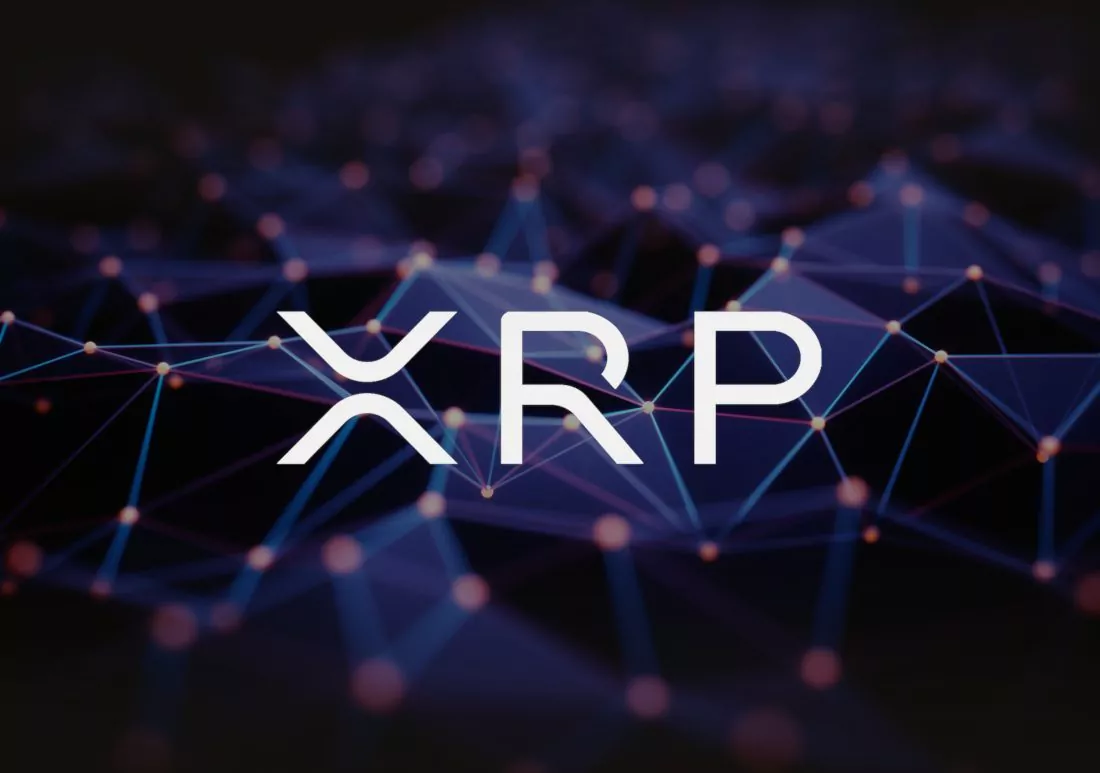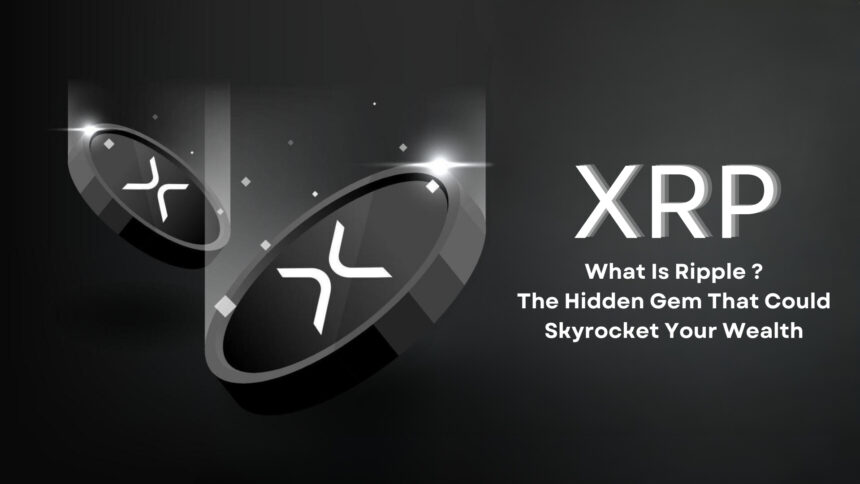In the ever-evolving world of cryptocurrency, Ripple stands out as a hidden gem that has the potential to significantly increase your wealth. But what is Ripple, and why might it be the next big thing in the financial world? This comprehensive how-to guide will walk you through everything you need to know—from the Ripple cryptocurrency definition to an insightful analysis of Ripple vs Bitcoin. You’ll gain a clear understanding of how does Ripple work and its potential to disrupt traditional financial systems. We’ll also provide expert investment strategies and debunk common misconceptions, ensuring you’re well-equipped to make informed decisions. So, whether you’re a seasoned investor or a curious newcomer, get ready to explore the untapped opportunities that Ripple offers.
Understanding Ripple: The Basics
Ripple is not just another cryptocurrency; it serves a unique function in the financial world. Where traditional cryptocurrencies like Bitcoin focus on being alternatives to fiat currency, Ripple aims to facilitate global financial transactions. This difference places Ripple in a unique position in the cryptocurrency market.
Here are the main points to understand about Ripple:
- Origin: Ripple was created in 2012 by Ripple Labs Inc. It is both a platform and a currency, designed to enable instant, low-cost international payments.
- Blockchain Nature: Unlike many cryptocurrencies, Ripple does not exclusively rely on blockchain. Instead, it uses a unique consensus ledger and a distributed network to validate transactions.
Key Elements of Ripple:
| Component | Description |
|---|---|
| XRP | The cryptocurrency used within the Ripple network for transactions. |
| RippleNet | A network of institutional payment providers like banks and money services. |
| Consensus Algorithm | Uses a unique consensus ledger instead of the traditional Proof-of-Work method. |
| Ledger | Both public (like traditional blockchain) and private aspects are involved. |
Functions and Benefits:
- Speed: Ripple offers transaction times of just 3-5 seconds, which is significantly faster than Bitcoin’s average of 10 minutes.
- Cost: Transactions are incredibly cheap, costing mere fractions of a cent.
- Scalability: Ripple can handle 1,500 transactions per second, making it more scalable than many other cryptocurrencies.
Why Ripple Stands Out:
Ripple vs Bitcoin: Unlike Bitcoin, which is highly decentralized, Ripple collaborates with traditional financial institutions, aiming for a seamless integration into existing financial systems. This unique position makes it a potential game-changer for banks and other financial entities.
Conclusion
Understanding Ripple and its specific goals can help investors and users appreciate its potential. Knowing the basics, such as its origins, key components, and unique features, sets the foundation for deeper exploration into topics like the Ripple cryptocurrency definition and How does Ripple work.

Photo by Sami Matias Breilin on Unsplash
Ripple Cryptocurrency Definition: What You Need to Know
When diving into the world of digital currencies, understanding the specifics is crucial. Ripple is a form of digital currency, which also used to be referred to as XRP. To put it simply, Ripple is both a platform and a currency, serving a dual purpose that many other cryptocurrencies do not.
What Makes Ripple Unique?
The following table highlights the unique characteristics of Ripple:
| Feature | Description |
|---|---|
| Consensus Ledger | Utilizes a unique consensus ledger to validate transactions. |
| Transaction Speed | Transactions complete in 4-5 seconds. |
| Transaction Fees | Very low fees, generally fractions of a cent. |
| Scalability | Capable of handling 1,500 transactions per second. |
| Institutional Support | Used by financial institutions worldwide for cross-border payments. |
Ripple is often confused with other forms of cryptocurrency such as Bitcoin. The Ripple cryptocurrency definition clarifies that XRP isn’t mined like Bitcoin but is pre-mined, making its operation substantially different.
How Does Ripple Work?
Understanding How does Ripple work? can provide further clarification for investors and users. Ripple’s primary function is to facilitate real-time cross-border payment solutions for financial institutions. It acts as a bridge currency, allowing for the instantaneous and secure transfer of money globally. Here’s a brief breakdown:
- Ledger: Ripple maintains a ledger known as the XRP Ledger, which is maintained by a network of independent validating servers.
- Transactions: Transactions are verified by consensus among network participants, making it highly efficient.
- Payment Protocol: RippleNet, Ripple’s payment network, uses XRP to bridge different fiat currencies during transactions.
Ripple vs Bitcoin: The Essentials
Understanding Ripple vs Bitcoin allows you to appreciate the complexities and advantages Ripple brings to the table. Unlike Bitcoin, which aims to replace traditional currencies, Ripple seeks to enhance payment systems currently in use.
In conclusion, knowing Ripple cryptocurrency definition is vital for anyone interested in digital currencies or looking to make informed investment decisions. This foundational knowledge helps in understanding how Ripple operates, its advantages over other cryptocurrencies, and why it holds substantial growth potential in the financial sector.
How Does Ripple Work? An In-Depth Explanation
To fully comprehend Ripple, it is crucial to break down its unique operating mechanism. Unlike traditional cryptocurrencies such as Bitcoin, Ripple does not rely on a blockchain to achieve consensus. Instead, it employs a real-time gross settlement system, currency exchange, and remittance network known as RippleNet.
RippleNet and Its Components
- XRP Ledger: The decentralized ledger that records all transactions.
- XRP: The native digital asset used for transacting on the network.
- Gateways: Points of entry for users to access the Ripple network.
- Interledger Protocol: Facilitates the connection between different ledgers.
Consensus Algorithm
The Ripple cryptocurrency definition and its consensus mechanism differ significantly from other blockchain-based protocols. Ripple uses a Unique Node List (UNL), a trustworthy set of nodes, to verify transactions:
- Transaction Proposal: Participating nodes propose a transaction.
- Validation: Nodes in the UNL work to validate these transactions.
- Agreement: Once consensus is reached (around 80% agreement), the transaction is added to the ledger.
How Transactions Flow Through RippleNet
“Ripple offers a seamless experience for global financial transactions.”
- Initiation: A user initiates a transaction through a gateway.
- Verification: Nodes validate this transaction using the Ripple consensus algorithm.
- Settlement: The transaction is settled in real-time across the network.
Comparison Table: Ripple vs Bitcoin
| Feature | Ripple | Bitcoin |
|---|---|---|
| Consensus Mechanism | Unique Node List (UNL) | Proof of Work (PoW) |
| Transaction Speed | 4 seconds | 10 minutes |
| Transaction Cost | Fractions of a cent | Can be high during peak times |
| Primary Use | Cross-border payments, settlement | Decentralized digital currency |
The Practical Advantages
- Speed: Ripple processes transactions in seconds, whereas Bitcoin takes minutes.
- Cost: Transactions on Ripple are significantly less expensive.
- Scalability: Ripple can handle over 1,500 transactions per second, making it highly scalable compared to Bitcoin’s 7 transactions per second.
Enhanced Interoperability
Finally, Ripple’s Interledger Protocol allows for seamless transactions between different ledger systems. This functionality sets it apart and expands its usability in various financial services.
By understanding how Ripple works, you can better appreciate its potential impact on the financial industry. This knowledge equips you to make informed decisions on whether to incorporate Ripple into your investment portfolio.
Ripple vs Bitcoin: Key Differences and Similarities
When discussing the world of cryptocurrency, Ripple and Bitcoin often come up in conversation. While both are digital currencies aimed at revolutionizing financial transactions, their functions, use cases, and technologies set them apart. Below is a comprehensive look into the key differences and similarities between these two prominent cryptocurrencies.
Functions and Objectives
| Aspect | Ripple | Bitcoin |
|---|---|---|
| Primary Use | Facilitating real-time, cross-border payments & financial transactions | Peer-to-peer digital transactions & storing value |
| Transaction Speed | Ripple, due to its consensus ledger, typically takes 4 seconds per transaction | Bitcoin transactions can take from 10 minutes to an hour |
| Objective | To connect banks, payment providers, and digital asset exchanges | To decentralize financial transactions & create a stable digital asset |
| Transaction Fees | Minimal fees | Fees can vary depending on network congestion |
Technologies and Protocols
- Consensus Mechanism:
- Ripple: Utilizes a consensus ledger, which doesn’t require mining to validate transactions.
- Bitcoin: Uses Proof of Work (PoW), a mining protocol that requires vast computational power.
- Currency Units:
- Ripple: Employs “XRP” as its native cryptocurrency.
- Bitcoin: Uses “BTC” as the denomination.
Adoption and Utility
Ripple has gained traction among financial institutions owing to its ability to settle transactions with minimal delays and lower costs. Bitcoin, however, has seen widespread acceptance as a store of value and is often referred to as digital gold.
Key Similarities include:
- Decentralization: Both currencies support decentralized frameworks, although in different capacities.
- Global Reach: Each aims to facilitate global transactions, but their targets and partners differ significantly.
Conclusion
In summary, Ripple vs Bitcoin showcases distinct characteristics tailored to their specific purposes. While Ripple is explicitly designed to enhance the efficiency of the financial system (Ripple cryptocurrency definition), Bitcoin is pivotal in decentralizing and democratizing financial transactions. By understanding these differences, investors can make better decisions about which currency aligns with their investment goals.
Furthermore, if you are intrigued by these differences, exploring how does Ripple work can give you better insights into its functionality compared to Bitcoin. This knowledge can be crucial when deciding on potential cryptocurrency investments.
The Potential of Ripple: Why It Could Skyrocket Your Wealth
Understanding the potential of Ripple is key to grasping why it could significantly boost your wealth. Unlike other cryptocurrencies, Ripple aims to enhance the global payment system, which opens up numerous investment opportunities. This section will break down the main factors that make Ripple a promising asset.
Key Points to Consider
- Actual Use Case: Ripple is not just another digital currency. Its primary function is to facilitate seamless and affordable cross-border transactions for financial institutions. This practical use case positions it uniquely in the market.
- Partnerships with Major Financial Institutions: Ripple already collaborates with over 300 financial institutions, including major players like Santander and American Express. These partnerships drive its adoption and, in turn, its value.
- Speed and Efficiency: Ripple processes transactions in a matter of seconds and can handle 1,500 transactions per second. This speed and efficiency make it a preferred choice for large-scale financial operations.
Ripple vs Bitcoin: Key Differences and Similarities
Here is a quick table to highlight how Ripple differs from other cryptocurrencies like Bitcoin:
| Aspect | Ripple | Bitcoin |
|---|---|---|
| Purpose | Cross-border payments | Digital Gold (Store of value) |
| Transaction Speed | 4-5 seconds | 10-20 minutes |
| Scalability | 1,500 transactions per second | 7 transactions per second |
| Energy Consumption | Minimal | High |
Why Ripple Could Skyrocket Your Wealth
- Market Adoption: As more banks and financial institutions adopt Ripple’s technology, the demand for Ripple (XRP) will likely surge.
- Regulatory Clarity: Ripple operates in a more regulator-friendly space, which can lead to increased investor confidence.
- Technological Advancements: Continuous improvements in Ripple’s technology enhance its capabilities, making it more attractive for adoption.
In conclusion, Ripple offers substantial real-world utility, established partnerships, and superior transaction speeds. These factors combine to create a strong case for why Ripple has the potential to skyrocket your wealth. Always consider diversifying investments and conducting thorough research before diving in.
Adopting Ripple could be a game-changing move for your investment portfolio. Please consult your financial advisor for personalized advice.

How to Invest in Ripple: A Step-by-Step Guide
When considering how to invest in Ripple, understanding the process is crucial. Ripple has emerged as a prominent player in the cryptocurrency market, attracting a diverse range of investors. This guide will walk you through the essential steps to start your investment journey in Ripple cryptocurrency.
Step 1: Choose a Reliable Exchange
Begin by selecting a reputable cryptocurrency exchange where Ripple is traded. Major exchanges such as Binance, Coinbase, and Kraken offer Ripple. Look for:
- Security features: Ensure the exchange has strong security protocols.
- User reviews: Check what others are saying about their experience.
- Fees: Be aware of the trading and withdrawal fees.
Step 2: Create an Account
Once you’ve selected an exchange, you need to create an account. This involves:
- Registering: Provide your email address and create a strong password.
- Verification: Many exchanges require identity verification to comply with regulations.
Step 3: Deposit Funds
Before you can buy Ripple, deposit funds into your exchange account. Most platforms accept:
- Bank transfers
- Credit/debit cards
- Other cryptocurrencies (like Bitcoin or Ethereum)
Step 4: Purchase Ripple
After depositing funds, navigate to the trading section of the exchange and:
- Select Ripple (XRP): Find and select Ripple from the list of cryptocurrencies.
- Choose order type: Opt for either a market order (buys instantly at current price) or a limit order (sets your desired price).
- Execute the purchase: Confirm your purchase.
Step 5: Secure Your Investment
To store your Ripple safely:
- Use a digital wallet: Consider using digital wallets like Ledger Nano S or Trezor for heightened security.
- Avoid leaving coins in the exchange wallet: This reduces the risk of hacking.
Additional Tips for Investing in Ripple
- Stay informed: Keep up with Ripple news and market trends.
- Diversify: Don’t put all your capital into one cryptocurrency.
- Consult: Seek advice from financial experts if you’re unsure.
By following these steps, you can confidently invest in Ripple and potentially benefit from its speculative growth. Remember, understanding factors like the Ripple cryptocurrency definition and how does Ripple work will further solidify your investment decisions. For a deeper understanding, comparing Ripple vs Bitcoin can offer valuable insights into market behavior.
Investing in Ripple can be a rewarding venture, but it’s always essential to approach with diligence and a well-researched strategy.
Common Misconceptions About Ripple Debunked
Whether you’re a seasoned cryptocurrency enthusiast or a newcomer, it’s essential to debunk common myths and misconceptions about Ripple. Clearing up these misunderstandings can help you make informed decisions and optimize your investment strategy. Let’s break down some of the most prevalent misconceptions:
Ripple and XRP Are the Same
One widespread misconception is that Ripple and XRP are interchangeable terms. In reality, Ripple is a technology company specializing in financial solutions, while XRP is the digital currency used within the Ripple network. Ripple develops systems to facilitate instant cross-border payments, and XRP acts as a bridge currency, enhancing these transactions’ efficiency.
Ripple is Centralized
Another false belief is that Ripple is a centralized cryptocurrency. While Ripple does have some elements that differ from traditional decentralized systems, it operates on an open-source, decentralized blockchain protocol called the XRP Ledger. Unlike Bitcoin, which relies on mining, XRP uses a consensus protocol involving multiple validators, maintaining the network’s decentralized nature.
Ripple Cryptocurrency Definition: Only for Banks
Many people think Ripple’s technology is exclusively for banks. While Ripple aims to improve banking systems, it also caters to various financial institutions, payment providers, and even individual users. Ripple’s solutions are versatile, providing benefits beyond the banking sector.
| Misconception | Reality |
|---|---|
| Ripple and XRP are identical | Ripple is a technology company; XRP is its digital currency. |
| Ripple is centralized | Ripple operates on decentralized, open-source blockchain protocol. |
| Only for banks | Ripple serves banks, financial institutions, and individual users. |
Ripple vs Bitcoin: Comparing Security
A common belief is that Bitcoin is more secure than Ripple. However, each cryptocurrency has its security protocols. Ripple’s consensus algorithm ensures transaction integrity and network security without the energy-intensive process of mining. This results in faster and more eco-friendly transactions compared to Bitcoin.
How Does Ripple Work with Regulation?
Finally, some think Ripple faces more regulatory hurdles than other cryptocurrencies. In truth, Ripple has been proactive in engaging with regulators to ensure compliance and foster innovation within the legal framework. This approach aims to integrate Ripple’s technology smoothly into the existing financial ecosystem.
By debunking these myths, it becomes clear that Ripple offers unique advantages and could be a lucrative addition to your investment portfolio. Understanding the Ripple cryptocurrency definition, how it works, and its comparisons with Bitcoin can position you to seize opportunities in this dynamic space.
Future Projections: What Experts Say About Ripple’s Growth
Ripple has garnered significant attention in the cryptocurrency world due to its unique features and strong partnerships with financial institutions. Ripple has shown promise as a transformative force in the way payments and remittances are handled globally. To understand where this cryptocurrency might be headed, it is crucial to consider expert opinions and future projections.
Key Expert Insights on Ripple’s Growth
- Market Adoption and Partnerships:
- Ripple has partnered with over 300 financial institutions globally.
- These include notable names like Santander, American Express, and SBI Holdings.
- Experts believe increased adoption by banks and financial entities could push Ripple into mainstream usage.
- Technological Advancements:
- The Ripple network (XRP Ledger) is known for efficient transaction speeds and lower costs.
- Continuous upgrades and developments in the technology could position Ripple as a superior choice for international transactions.
- Regulatory Environment:
- The regulatory landscape for cryptocurrencies is evolving.
- Positive regulatory developments in favor of cryptocurrencies could enhance Ripple’s value and credibility.
- Experts argue that clear regulations could remove existing barriers, potentially driving up the demand for Ripple.
Future Projections Table
| Expert | Prediction | Key Points |
|---|---|---|
| Brad Garlinghouse (CEO, Ripple) | Significant growth and adoption in the next 5 years | Emphasis on partnerships and regulatory clarity |
| Analyst at CoinTelegraph | Potential 100% growth in value over the next 2-3 years | Driven by technological advancement and scalability |
| Investor Insights | XRP could become the go-to for international remittances | Increasing market trust and operational efficiency |
Bold phrases like *Ripple, Ripple cryptocurrency definition, How does Ripple work, and Ripple vs Bitcoin highlight its crucial elements and drive SEO. The potential for Ripple to skyrocket your wealth lies in these expert predictions, encapsulated by market adoption, technological advancements, and an evolving regulatory environment. Keeping an eye on these factors will help investors make informed decisions.

Photo by Jonathan Cosens Photography on Unsplash
Frequently Asked Questions
What is Ripple?
Ripple is a digital payment protocol and cryptocurrency designed to facilitate fast and low-cost international money transfers. Unlike traditional banking systems, Ripple operates over a decentralized blockchain network that ensures secure and instant transactions. The native cryptocurrency used in the Ripple network is called XRP.
How is Ripple different from other cryptocurrencies?
Ripple distinguishes itself from other cryptocurrencies like Bitcoin and Ethereum by focusing primarily on banking and financial institutions. While Bitcoin aims to be a decentralized digital currency and Ethereum is centered on smart contracts, Ripple’s main goal is to enable frictionless cross-border payments. Its technology is designed to integrate seamlessly with existing financial infrastructure, thus appealing to banks and financial firms.
Why is Ripple considered a “hidden gem”?
Ripple is often seen as a hidden gem because it has substantial backing from established financial institutions and has real-world use cases in cross-border payments. Despite this, it tends to receive less media attention than other cryptocurrencies, allowing savvy investors to potentially discover its value and investment opportunities before it gains widespread popularity.
Can investing in Ripple skyrocket my wealth?
While Ripple has significant potential due to its unique technology and industry partnerships, it’s important to approach any cryptocurrency investment with caution. The volatile nature of the cryptocurrency market means that while there is potential for high returns, there is also considerable risk involved. It’s advised to conduct thorough research and consider your risk tolerance before investing.








Crypto pieces clear!
Crypto tips reliable!
Crypto tips engaging!
Crypto insights fresh!
Blockchain news solid!
Crypto insights detailed!
Crypto insights sharp!
Crypto tips neat!
Crypto insights engaging!
Crypto news valuable!
Cryptocurrency expertise!
Crypto tips crisp!
Blockchain articles clear!
Crypto content great!
Crypto guides accurate!
Crypto articles fun!
Crypto updates useful!
Crypto tips reliable!
Blockchain updates fun!
Crypto updates crisp!
Crypto updates fresh!
Crypto stories clear!
Crypto news great!
Blockchain stories current!
Crypto updates accurate!
Trusted blockchain source!
Crypto info solid!
Blockchain updates clear!
Crypto stories fresh!
Your updates keep me informed about the latest trends in cryptocurrency
Thank you for sharing such insightful updates about the crypto market